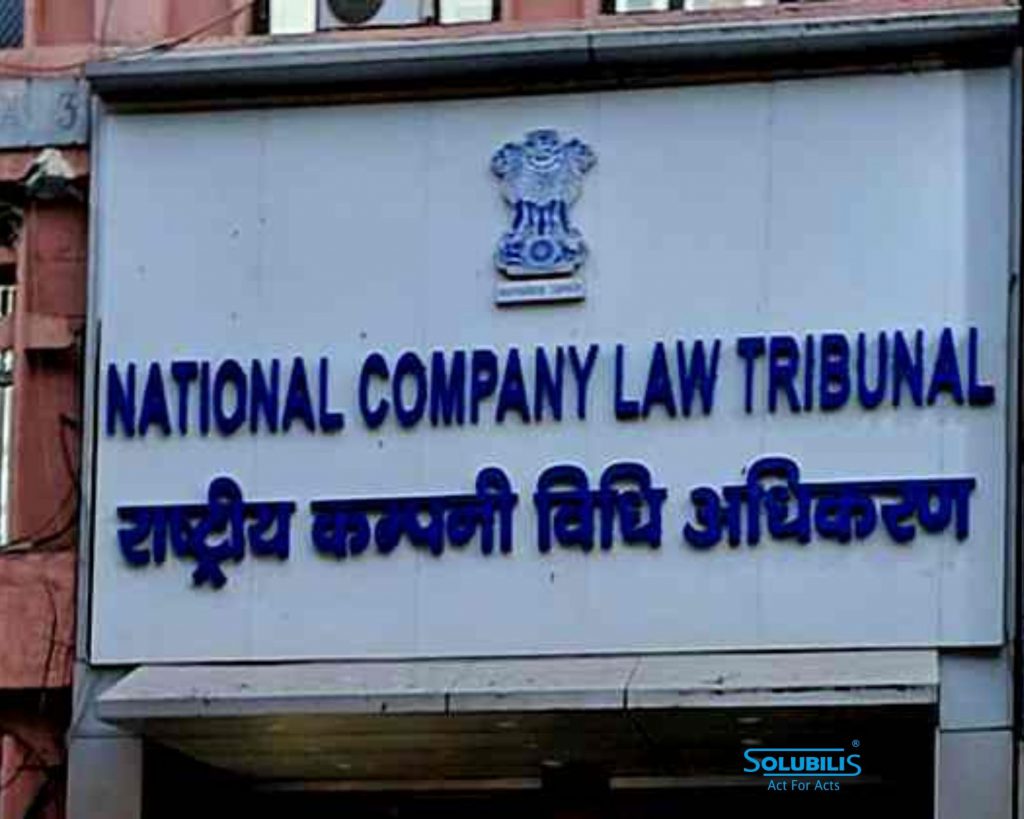The National Company Law Tribunal was provision by the Central Government in 2016 under Section 408 of the Companies Act, 2013. The National Company Law Tribunal has been provision as a semi legal body to oversee the companies enlisted in India and is a replacement to the Company Law Board. In this article, we check out at the National Company Law Tribunal, its capacities and powers exhaustively.
Extent of National Company Law Tribunal
The National Company Law Tribunal (NCLT) solidifies the corporate purview of the Company Law Board, Board for Industrial and Financial Reconstruction (BIFR), The Appellate Authority for Industrial and Financial Reconstruction (AAIFR) and the powers connecting with twisting up or rebuilding and different provisions, vested in High Courts. Thus, the National Company Law Tribunal will solidify all powers to administer the companies enlisted in India. With the foundation of the NCLT and NCLAT, the Company Law Board under the Companies Act, 1956 has now been broken down.
Benefits for National Company Law Tribunal
- NCLT is a specific court just for Corporates, i.e., companies enlisted in India.
- This will be something like a Tribunal for the Corporate Members.
- NCLT will decrease the variety of prosecution under the watchful eye of various discussions and courts.
- NCLT has various branches and can give equity at a short proximity.
- NCLT comprises of both legal and specialized members while settling on issues.
- The time taken to windup a company is diminished.
- Fast removal of cases will assist with decreasing the quantity of cases.
- NCLT and NCLAT have elite purview.
Powers of National Company Law Tribunal (NCLT)
The Tribunal and the Appellate Tribunal is limited by the standards set down in the Code of Civil Procedure and is directed by the standards of normal equity, dependent upon different provisions of this Act and of any guidelines that are made by the Central Government. The Tribunal and the Appellate Tribunal has the power to control its own technique.
Further, no respectful court has the ward to consider any suit or continuing regarding any matter which the Tribunal or the Appellate Tribunal is engaged to choose.
Public Company Law Tribunal partakes in a great many powers. Its powers include:
- Power to look for help of Chief Metropolitan Magistrate.
- De-registration of Companies.
- Announce the risk of members limitless.
- De-registration of companies in specific conditions when there is registration of companies is gotten in an unlawful or unjust way.
- Remedy of oppression and mismanagement.
- Power to hear complaint of refusal of companies to move protections and amendment of register of members.
- Insurance of the interest of different partners, particularly non-advertiser investors and contributors.
- Power to give help to the financial backers against a huge provision of improper activities committed by the company the board or different specialists and consultants who are related with the company.
- Bothered investors have the remedy of class activities for looking for redressal for the demonstrations/exclusions of the company which hurt their privileges as contributors.
- Powers to guide the company to return its records or permit the company to re-examine its budget report yet don’t allow resuming of records. The company could itself at any point likewise approach the Tribunal through its chief for amendment of its budget summary.
- Power to research or for starting examination procedures. An examination can be led even abroad. Provisions are given to help examination companies and courts of different nations concerning examination procedures.
- Power to explore into the responsibility for company.
- Power to freeze resources of the company.
- Power to force limitation on any protections of the company.

Change of public limited company into private limited company.
In the event that the company can’t or has not held an Annual General Meeting as expected under the Companies Act or a necessary Extraordinary General Meeting, then the Tribunal has abilities to require a General Meetings.
Power to change the financial year of a company enlisted in India.
Functions of NCLT
Here I have given few functions of the NCLT stated below.
Transfer of shares
NCLT is likewise engaged to hear complaints of dismissal of organizations in moving offers and protections and under section 58-59 of the Act which were at the beginning were under the domain of the Company Law Board. Returning to Companies Act, 1956 the provision accessible for dismissal of transmission or move were restricted exclusively to the offers and debentures of an organization however at this point the possibility has been raised under the Companies Act, 2013 and the now covers every one of the protections which are given by any organization.
Power to investigate
According to the provision of the Companies Act, 2013 examination about the undertakings of the organization could be requested with the assistance of a use of 100 members though already the use of 200 members was required for something very similar. Besides, on the off chance that an individual who isn’t connected with an organization and can convince NCLT about the presence of conditions for requesting an examination then NCLT has the power for requesting an examination. An examination which is requested by the NCLT could be led inside India or anyplace on the planet. The provisions are drafted for offering and looking for help from the courts and examination organizations and of far off nations.
National Company Law Appellate Tribunal (NCLAT)
Claim from request of Tribunal can be raised to the National Company Law Appellate Tribunal (NCLAT). Requests can be made by any individual wronged by a request or choice of the NCLT, inside a time of 45 days from the date on which a duplicate of the request or choice of the Tribunal.
On the receipt of an allure from an oppressed individual, the Appellate Tribunal would pass such requests, in the wake of offering a chance of being heard, as it thinks about fit, affirming, changing or saving the request that is pursued against. The Appellate Tribunal is expected to arrange the allure inside a time of a half year from the date of the receipt of the appeal.

